Pub history
The Joseph Bramah
The prolific Barnsley-born inventor, best known for his flushing water closet, ‘unpickable’ lock and hydraulic press, Joseph Bramma was born near Barnsley in 1749. At 23, he walked to London to seek his fortune. Now called Joseph Bramah, he became a prolific inventor. He was the inventor of an unpickable lock. The Duke of Wellington was an admirer of the Bramah Lock, as was Czar Alexander I. The lock, mentioned in the writings of Charles Dickens, remained unpicked for more than 60 years.
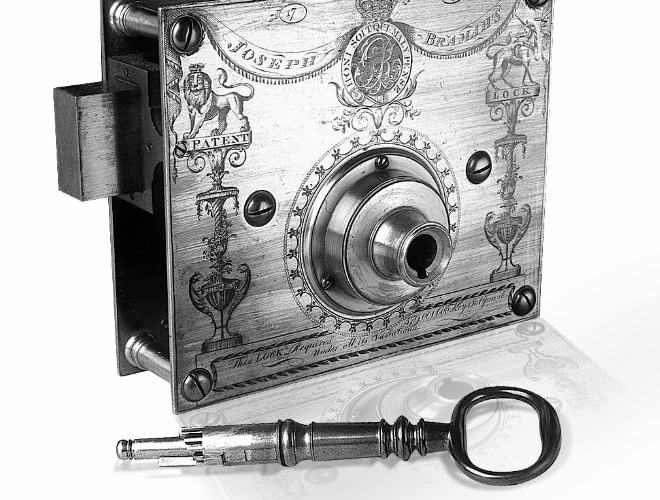
The prolific Barnsley-born inventor, best known for his flushing water closet, ‘unpickable’ lock and hydraulic press, Joseph Bramma was born near Barnsley in 1749. At 23, he walked to London to seek his fortune. Now called Joseph Bramah, he became a prolific inventor. He was the inventor of an unpickable lock. The Duke of Wellington was an admirer of the Bramah Lock, as was Czar Alexander I. The lock, mentioned in the writings of Charles Dickens, remained unpicked for more than 60 years.
Prints and text about The Joseph Bramah

The text reads: This Wetherspoon pub is named after Joseph Bramah, who, appropriately, invented a beer pump. The prolific Barnsley inventor is, however, much better known for his flushing water closet, ‘unpickable’ lock and hydraulic press.
The press was a major breakthrough, enabling builders to lift heavy girders. His ‘unpickable’ lock was exhibited in the window of his fashionable London shop, in 1790. Bramah offered 200 guineas to anyone who could pick it, which was eventually claimed 61 years later.
It was all a far cry from the village of Stainborough, near Barnsley, where Joseph Bramma was born in the spring of 1749. At the age of 23, he walked to London to seek his fortune, and it was around this time that he changed the spelling of his name to Bramah.
A photograph of Joseph Bramah’s fire engine
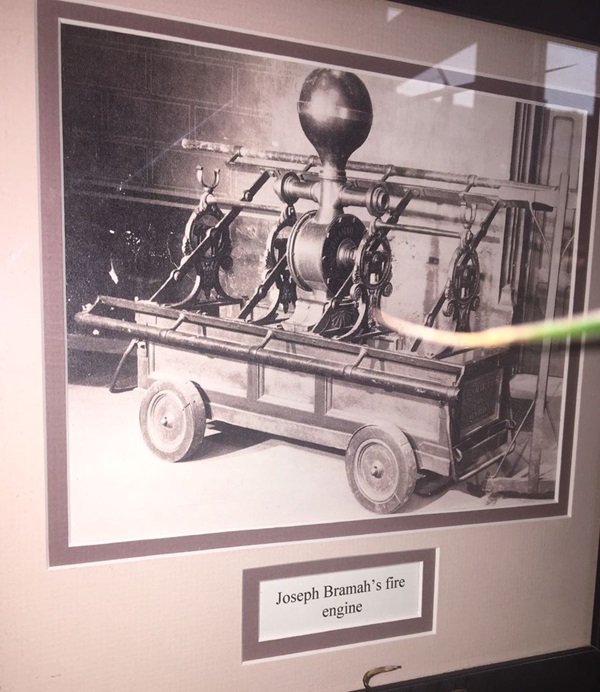
An illustration of Joseph Bramah’s lock patented in 1784
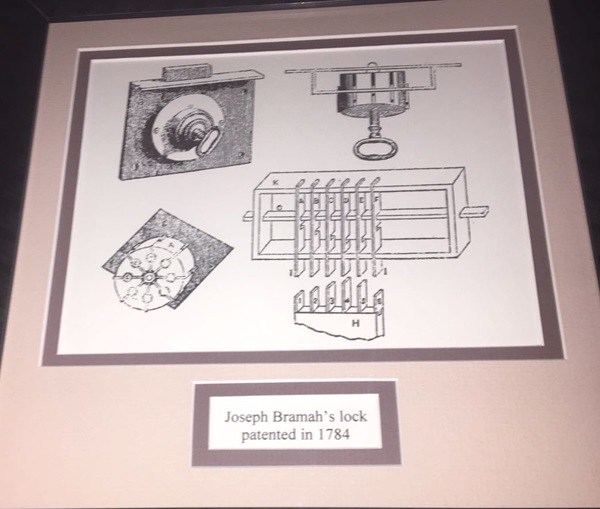
An illustration of the Bramah water closet of 1778 – still considered the best a century later
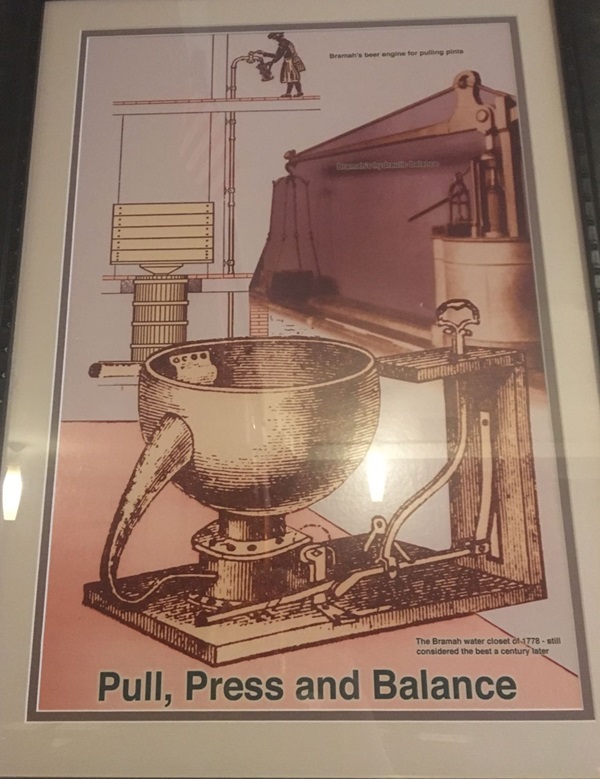
A photograph of where Joseph Bramah was born, at Stainborough Lane Farm
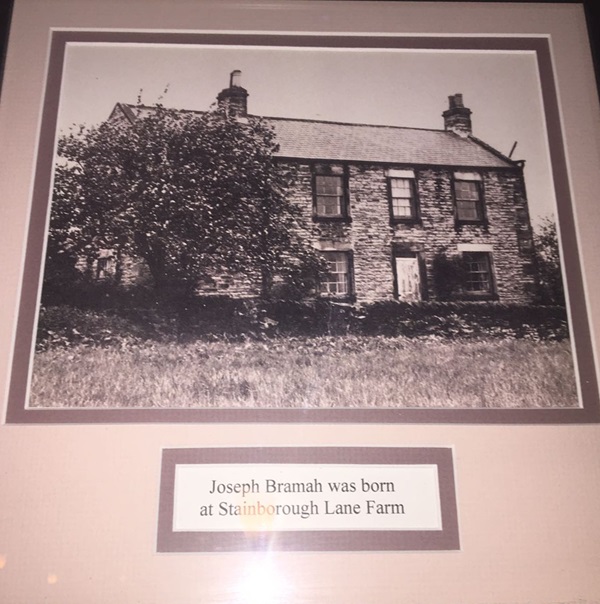
Photographs and text about mining
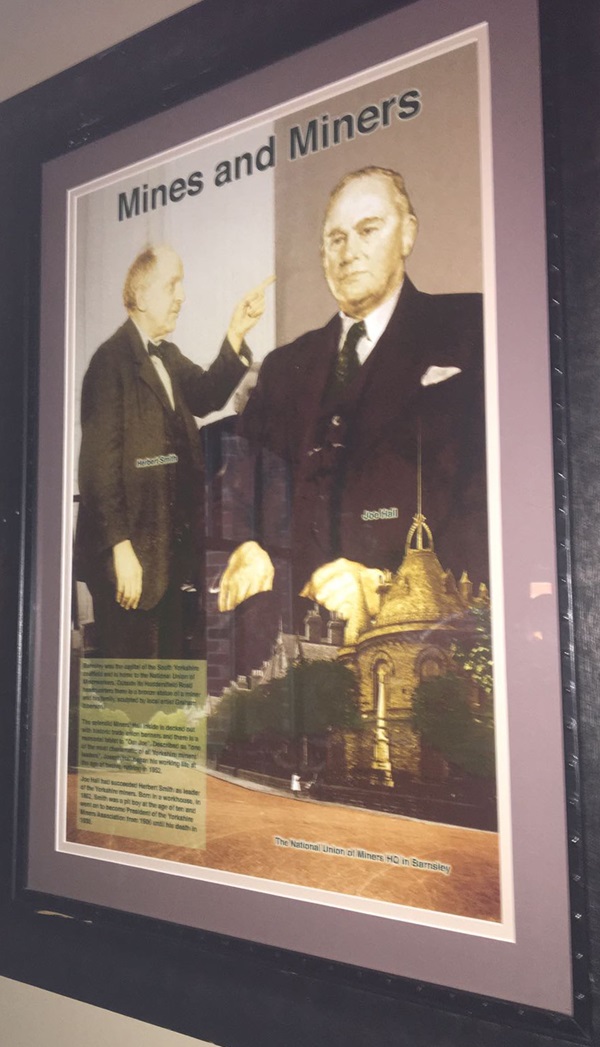
The text reads: Barnsley was the capital of the South Yorkshire coalfield and is home to the National Union of Mineworkers. Outside its Huddersfield Road headquarters, there is a bronze statue of a miner and his family, sculpted by local artist Graham Ibberson.
The splendid Miners’ Hall inside is decked out with historic trade union banners, and there is a memorial tablet to ‘Our Joe’. Described as ‘one of the most charismatic of all Yorkshire miners’ leaders’, Joseph Hall began his working life at the age of 12, retiring in 1952.
Joe Hall had succeeded Herbert Smith as leader of the Yorkshire miners. Born in a workhouse, in 1862, Smith was a pit boy at the age of 10 and went on to become president of the Yorkshire Miners’ Association from 1906 until his death in 1938.
Prints and text about Joseph Locke
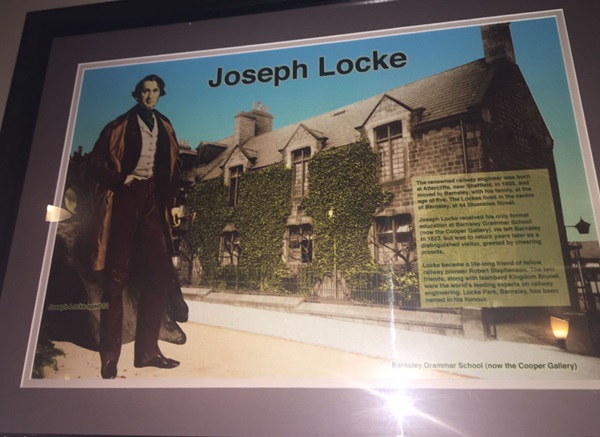
The text reads: The renowned railway engineer was born at Attercliffe, near Sheffield, in 1805 and moved to Barnsley, with his family, at the age of five. The Lockes lived in the centre of Barnsley, at 44 Shambles Street.
Joseph Locke received his only formal education at Barnsley Grammar School (now the Cooper Gallery). He left Barnsley in 1823 but was to return years later as a distinguished visitor, greeted by cheering crowds.
Locke became a lifelong friend of fellow railway pioneer Robert Stephenson. The two friends, along with Isambard Kingdom Brunel, were the world’s leading experts on railway engineering. Locke Park, Barnsley, has been named in his honour.
A photograph of the rescue team from Barnsley Main colliery in 1931
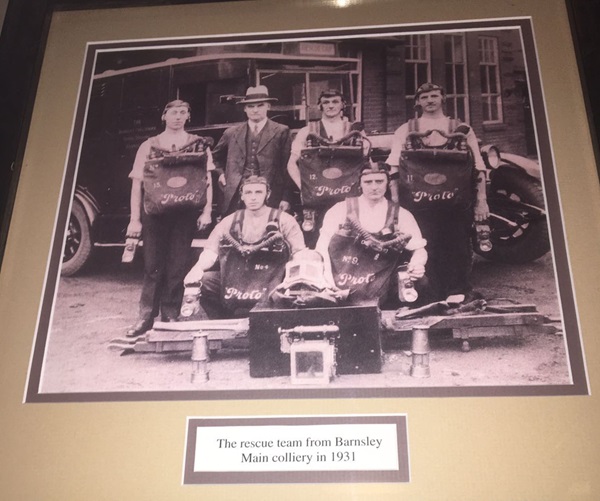
A posed photograph in c1915, Barnborough Main Colliery
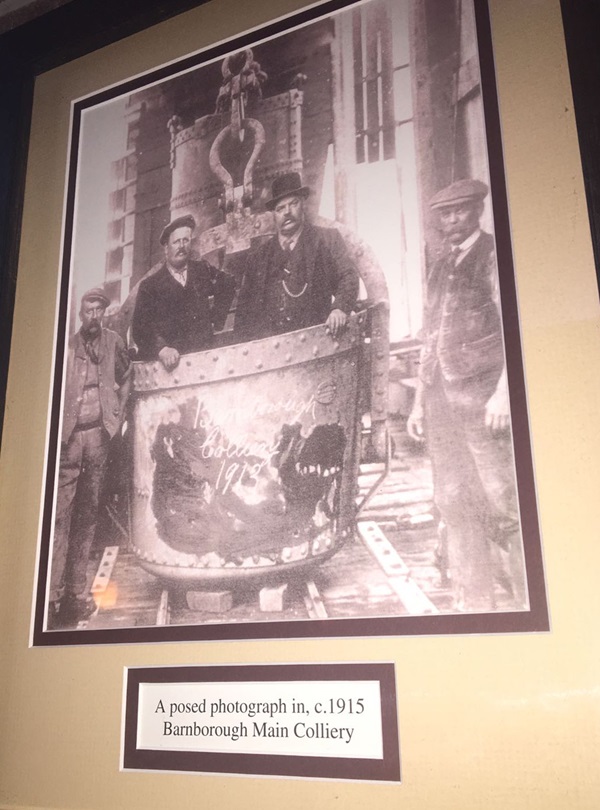
A photograph of the entrance to the Arcade from Market Hill, c1910
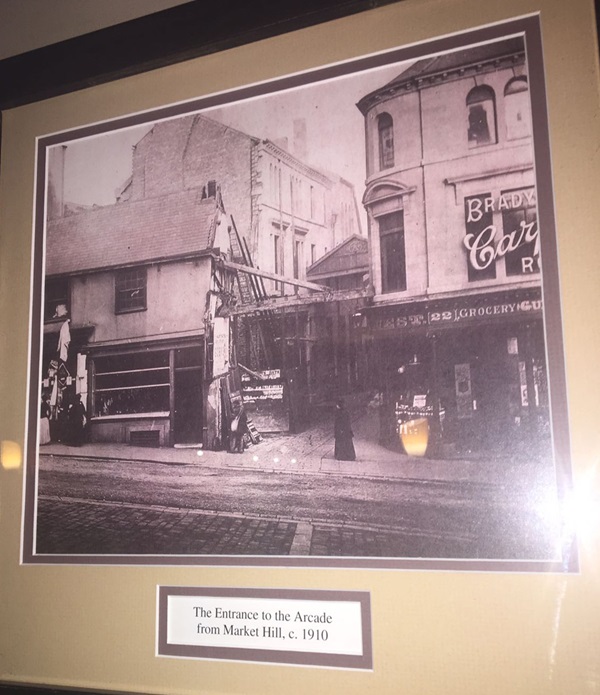
A photograph of fruit stalls and litter, outside Barraclough’s Foundry
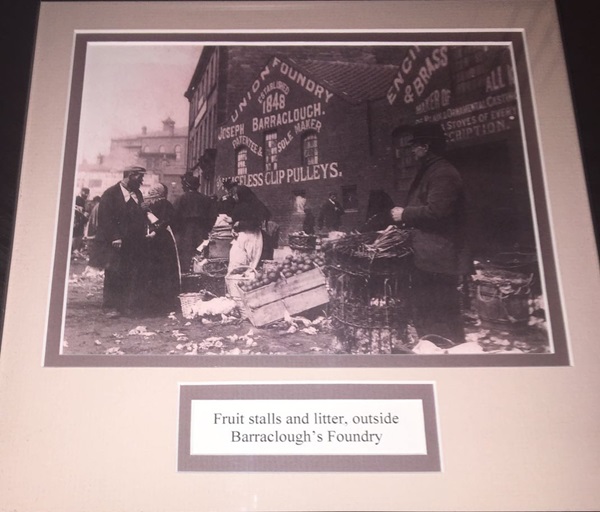
An illustration of the town in 1820, from Far Well Field, in the southwest
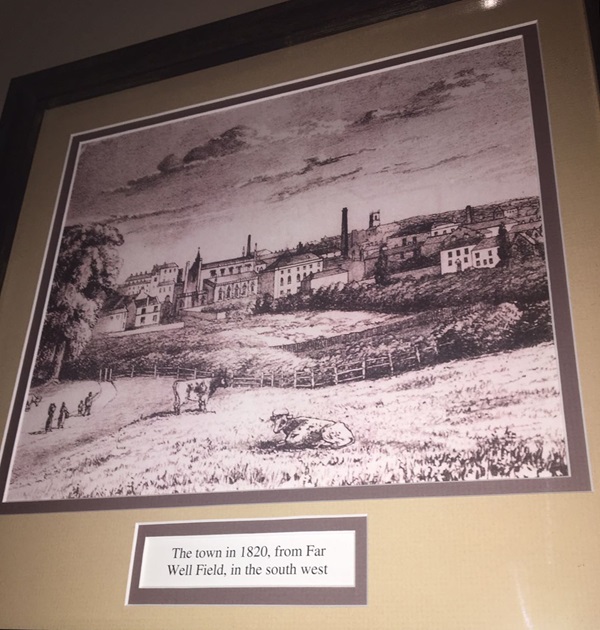
A photograph of the crowds on Market Hill for the visit of King George V in 1912
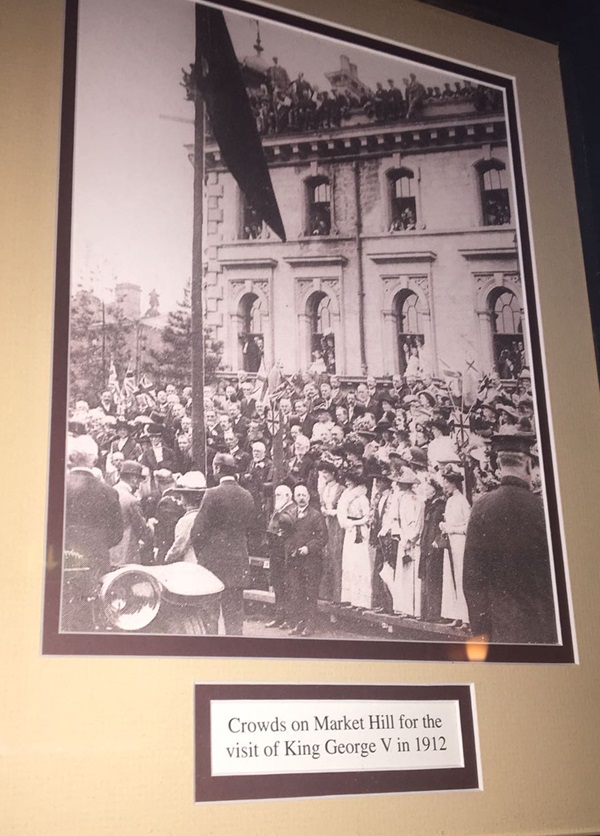
A photograph of the Public Hall on Eldon Street, opened in 1878
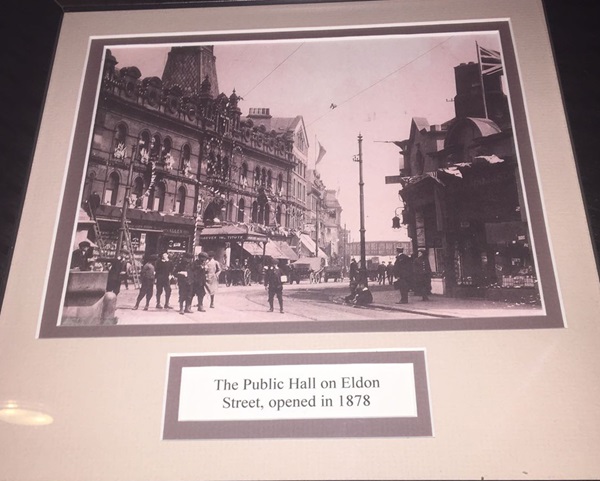
External photograph of the building – main entrance
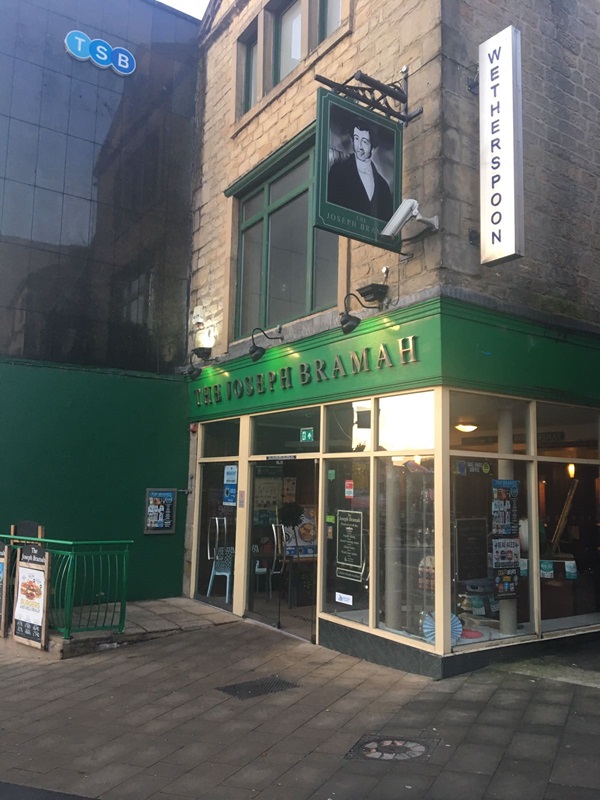
J D Wetherspoon gratefully acknowledges the assistance of the Tasker Trust in compiling the display of local history in The Joseph Bramah, and their permission to use images from Barnsley Streets by EG Tasker.
Extract from Wetherspoon News Spring 2019
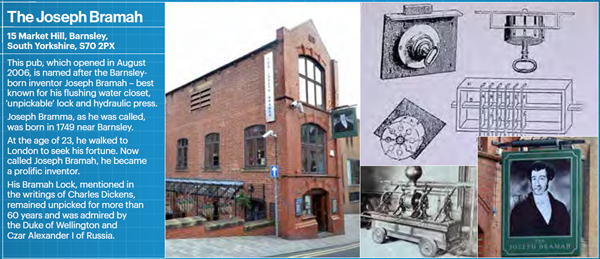
The text reads: This pub, which opened in August 2006, is named after the Barnsley-born inventor Joseph Bramah – best known for his flushing water closet, ‘unpickable’ lock and hydraulic press.
Joseph Bramma, as he was called, was born in 1749 near Barnsley.
At the age of 23, he walked to London to seek his fortune. Now called Joseph Bramah, he became a prolific inventor.
His Bramah Lock, mentioned in the writings of Charles Dickens, remained unpicked for more than 60 years and was admired by the Duke of Wellington and Czar Alexander I of Russia.





